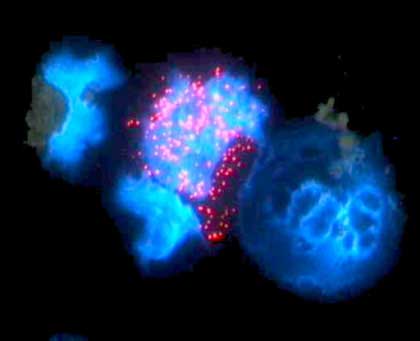Gene therapy for the inertization of a brain disease

French, German and American researchers have used a method that combines gene therapy and blood stem cells to slow the development of adrenoleukodystrophy (ALD).
Adrenoleukodystrophy is a serious hereditary disease caused by a lack of ALD protein. This protein participates in the degradation of fatty acids and prevents the accumulation of fatty acids in the nervous system. In these patients, as fatty acids accumulate, the layer of myelin that protects the nerve fibers of the brain is continuously lost. Without myelin, nerves do not work properly, so physical and mental disabilities appear.
Bone marrow transplants slow the development of the disease. However, it is often difficult to find a compatible donor and is also a dangerous operation.
This research has extracted stem cells from the blood of two patients affected by this disease and introduced the ALD protein gene through the modified HIV virus. Subsequently, these genetically modified cells have been incorporated into patients. Two years later, the ALD protein remains visible in the blood cells of these patients.
In both patients, neurological improvement and stagnation in disease development have been achieved with respect to transplanted bone marrow patients. They will certainly have to continue investigating with more patients. However, confirmation of the results could lead to a revolutionary therapy that could serve to cure in the future many other human diseases.
In the image, the mother cell of the blood visible at the red point has been modified by gene therapy and is now able to produce ADL protein.
Image courtesy of: Patrick Aubourg
Buletina
Bidali zure helbide elektronikoa eta jaso asteroko buletina zure sarrera-ontzian











